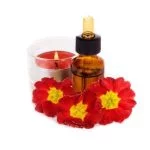Stress and anger are common emotions that many people struggle to manage, and the use of aromatherapy has been gaining attention as a natural way to alleviate these feelings. The power of aromatherapy for stress and anger management is increasingly being recognized, and its effectiveness in promoting relaxation and emotional balance is well-documented.
In this comprehensive guide, we will explore the potential of aromatherapy as a tool for managing stress and anger. Understanding the root causes of these emotions and how they can impact our overall well-being is essential in addressing them effectively. We will also delve into the science behind aromatherapy, shedding light on how essential oils and aromas can influence the brain and body to promote calming effects.
Furthermore, we will provide an in-depth look at the best essential oils for stress relief, offering a comprehensive guide to help you choose the most effective aromatherapy oils for your needs. Additionally, we will discuss various aromatherapy techniques specifically tailored for anger management, providing insights on how to use essential oils to calm both the mind and body.
Whether you are new to aromatherapy or looking to enhance your existing practice, this guide will also walk you through creating your own customized blend for stress and anger relief.
Lastly, we will offer practical tips on incorporating aromatherapy into your daily routine and explore new research and trends in this field. Stay tuned as we unlock the potential of aromatherapy in managing stress and anger.
Understanding Stress and Anger
Stress and anger are commonly experienced emotions that can have a significant impact on our mental and physical well-being. Stress can be caused by various factors such as work pressure, financial problems, or personal relationships, while anger can be triggered by frustration, injustice, or feeling threatened. Both emotions can lead to negative effects on our health if not managed properly.
This is where aromatherapy for stress and anger comes into play. Aromatherapy is a holistic healing treatment that uses natural plant extracts to promote health and well-being.
The use of essential oils in aromatherapy has been found to have a calming and relaxing effect on the mind and body, making it an effective tool for managing stress and anger. The inhalation of certain scents can trigger neurotransmitters in the brain that can help alleviate negative emotions and induce feelings of calmness and relaxation.
Research has shown that certain essential oils have properties that make them particularly effective in managing stress and anger. Lavender oil, for example, has been found to have anxiolytic (anxiety-reducing) effects, while bergamot oil has been shown to have mood-boosting properties. These essential oils, when used in aromatherapy practices, can help reduce the symptoms of stress and anger by promoting relaxation, improving mood, and reducing emotional tension.
Incorporating aromatherapy into your daily routine can be as simple as using an essential oil diffuser at home or applying diluted essential oils to pulse points. Additionally, creating your own personalized aromatherapy blend tailored specifically for stress relief and anger management can further enhance the effectiveness of this natural treatment method.
With its growing popularity and proven benefits, aromatherapy for stress and anger is becoming an increasingly attractive option for those looking for alternative ways to manage their emotional well-being.
| Essential Oil | Properties |
|---|---|
| Lavender oil | Anxiolytic (anxiety-reducing) |
| Bergamot oil | Mood-boosting |
The Science Behind Aromatherapy
Aromatherapy has been used for centuries as a natural way to promote relaxation, reduce stress, and manage anger. The use of essential oils and aromas can have a powerful impact on the brain and body, influencing emotions and promoting overall well-being. There is a growing body of scientific research that supports the effectiveness of aromatherapy for stress and anger management.
The sense of smell is closely linked to the limbic system in the brain, which is responsible for emotions, memories, and arousal. When essential oils are inhaled, their aromatic compounds can stimulate the olfactory system, sending signals to the brain that can have a calming or invigorating effect. For example, lavender oil has been shown to have a relaxing effect on the central nervous system, while citrus oils like lemon or bergamot can help uplift and energize the mind.
In addition to their effects on the brain, essential oils also have physical effects on the body. When applied topically or used in massage therapy, certain essential oils can help reduce muscle tension, alleviate headaches, and promote overall relaxation.
For example, peppermint oil has been found to have analgesic properties that can help soothe tension headaches and muscle aches. Understanding how essential oils interact with both the brain and body is key to maximizing their benefits for stress relief and anger management.
- Lavender
- Chamomile
- Bergamot
- Ylang-ylang
- Rosemary
- Inhalation: Add a few drops of your chosen essential oil to a diffuser or inhale directly from the bottle.
- Topical Application: Dilute essential oils with a carrier oil like coconut or almond oil before applying them to the skin through massage or as part of a bath.
- Aromatherapy Massage: Combine your chosen essential oil with a carrier oil for a soothing massage that targets specific areas of tension.
Best Essential Oils for Stress Relief
When it comes to managing stress and anger, aromatherapy has been found to be incredibly effective. The use of essential oils for stress relief has a long history and is backed by scientific evidence. Different essential oils have different properties that can help to calm the mind, reduce feelings of anxiety, and promote relaxation. This section will provide a comprehensive guide to the best essential oils for stress relief and how they can be used in aromatherapy.
Lavender Oil
Lavender oil is one of the most popular choices for relieving stress and promoting relaxation. Research has shown that the scent of lavender can help to lower heart rate and blood pressure, making it an excellent choice for calming the body and mind. Whether used in a diffuser, added to bathwater, or applied topically with a carrier oil, lavender oil can be a powerful tool for managing stress.
Chamomile Oil
Known for its soothing properties, chamomile oil is another excellent option for stress relief. It contains compounds that can help to reduce feelings of anxiety and promote better sleep, making it a great choice for those dealing with stress-related insomnia. Adding a few drops of chamomile oil to a warm bath or using it in a massage oil can provide much-needed relaxation during stressful times.
Bergamot Oil
Bergamot oil is often used in aromatherapy for its uplifting and calming effects on the mind. Its citrusy scent can help to improve mood and reduce feelings of tension and anxiety. Whether used in a room spray, diffuser blend, or added to a carrier oil for topical use, bergamot oil can be an effective tool for managing stress and promoting emotional well-being.
By incorporating these essential oils into your aromatherapy routine, you can effectively manage your stress levels and find peace during moments of anger or frustration. The power of aromatherapy for stress and anger management lies in its ability to harness the natural properties of these oils to bring balance to both the mind and body.
Aromatherapy Techniques for Anger Management
Anger is a natural emotion that everyone experiences from time to time. However, when anger becomes overwhelming and uncontrollable, it can have negative effects on both physical and mental health. Aromatherapy can be an effective tool for managing anger and promoting a sense of calm in the mind and body.
Using Essential Oils for Anger Management
One of the most common ways to use essential oils for anger management is through inhalation. The inhalation of essential oils activates the olfactory system, which is connected to the emotional center of the brain. This can help to regulate mood and reduce feelings of anger and frustration. Diffusing calming essential oils such as lavender, chamomile, or bergamot in a room can create a peaceful atmosphere and promote relaxation.
Aromatherapy Massage for Anger Relief
Another effective way to use aromatherapy for anger management is through massage. When combined with a carrier oil, essential oils such as ylang-ylang, frankincense, or patchouli can be applied to the skin during a massage. The therapeutic touch combined with the soothing aroma of these essential oils can help release tension and reduce feelings of anger.
Aromatherapy Baths for Stress Relief
Taking a warm bath infused with calming essential oils is an excellent way to relieve stress and anger. Adding a few drops of lavender or sandalwood essential oil to bathwater can create a relaxing and tranquil experience. The combination of warm water and aromatherapy allows the body to relax while inhaling the soothing scents promotes emotional balance.
Incorporating these aromatherapy techniques into your daily routine can contribute to better managing stress and anger levels, leading to an overall improved sense of well-being. By utilizing the power of aromatherapy, individuals may naturally deal with emotions in a healthier manner.
Creating Your Own Aromatherapy Blend
Aromatherapy is a powerful and natural way to manage stress and anger, offering a holistic approach to emotional well-being. Creating your own aromatherapy blend can be a simple yet effective way to personalize your experience and address your specific needs. By customizing your blend, you can tailor the aroma and therapeutic benefits to support your unique emotional state.
To create your own aromatherapy blend for stress and anger relief, follow these simple steps:
1. Choose Your Base: Start by selecting a carrier oil, such as jojoba, sweet almond, or coconut oil. The carrier oil will dilute the essential oils and allow them to be safely applied to the skin.
2. Select Your Essential Oils: Consider the therapeutic properties of different essential oils and choose those that are known for their calming and soothing effects. Some popular choices for stress relief include lavender, chamomile, bergamot, and ylang-ylang. For anger management, consider essential oils like frankincense, rose, jasmine, and patchouli.
3. Blend Your Oils: Once you have chosen your essential oils, determine the ratio for your blend. A general rule of thumb is to use 10-15 drops of essential oil per ounce of carrier oil. You can adjust this ratio based on your personal preference and sensitivity to aromas.
4. Test Your Blend: Before using your customized blend extensively, perform a patch test on a small area of skin to ensure that you do not have any adverse reactions. This step is especially important if you have sensitive skin or allergies.
By following these steps, you can create a personalized aromatherapy blend that caters to your individual needs for stress and anger relief.
Incorporating Aromatherapy Into Your Daily Routine
Aromatherapy is a natural and effective way to manage stress and anger in your daily life. By incorporating essential oils into your routine, you can take advantage of their calming and soothing properties. Whether you are dealing with work-related stress or struggling to control feelings of anger, aromatherapy can offer relief and promote a sense of well-being.
One practical tip for using aromatherapy in your daily routine is to create a relaxing environment at home. You can do this by diffusing essential oils known for their stress-relieving properties, such as lavender, chamomile, or bergamot, in the areas where you spend the most time. Whether it’s in your living room, bedroom, or home office, the gentle aroma of these essential oils can help create a peaceful atmosphere and promote relaxation.
Another way to incorporate aromatherapy into your daily routine is by using essential oil roll-ons or blends that are specifically designed to alleviate stress and anger. You can apply these directly to pulse points like your wrists, temples, or neck throughout the day whenever you feel overwhelmed or anxious. The convenience of these portable aromatherapy products makes them ideal for busy individuals who need quick and easy access to stress relief on-the-go.
Lastly, consider incorporating aromatherapy into your self-care rituals. Whether it’s through taking a relaxing bath with a few drops of your favorite essential oil added to the water, practicing deep breathing exercises while inhaling the aroma of an essential oil blend, or simply enjoying a soothing massage with some diluted aromatic oils, finding moments for self-care can significantly reduce stress and anger levels.
| Aromatherapy Tip | Description |
|---|---|
| Create Relaxing Environment | Diffuse stress-relieving essential oils like lavender or chamomile at home |
| Use Essential Oil Roll-Ons | Apply portable aromatherapy products directly on pulse points for quick stress relief on-the-go |
| Incorporate Aromatherapy into Self-Care Rituals | Add a few drops of essential oil in bath water or enjoy scented massage for relaxation |
The Future of Aromatherapy
In conclusion, the future of aromatherapy for stress and anger management looks promising as new research and trends continue to emerge in this field. With a deeper understanding of how essential oils and aromas affect the brain and body, more effective methods for using aromatherapy as a holistic approach to emotional well-being are being developed.
As the demand for natural and alternative therapies grows, aromatherapy is gaining recognition as a practical and accessible solution for managing stress and anger. The use of essential oils in various settings, such as workplaces, schools, and healthcare facilities, is on the rise, showcasing the increasing acceptance and integration of aromatherapy into everyday life.
Furthermore, ongoing studies are focused on exploring the specific impact of different essential oils on stress reduction and anger management. This research aims to provide evidence-based recommendations on the most effective essential oils and techniques for addressing these emotions.
As more data becomes available, individuals seeking natural ways to alleviate stress and anger will have access to a wider range of resources tailored to their needs. In essence, with continued advancements in research and practices, aromatherapy stands to play a significant role in promoting emotional wellness and mental health for individuals looking for natural solutions to manage stress and anger.
Frequently Asked Questions
How Can I Reduce Stress and Anger?
Reducing stress and anger can be achieved through various techniques such as deep breathing, meditation, exercise, and engaging in activities that bring joy. It’s also important to communicate openly and honestly about your feelings to address underlying issues.
What Can I Take for Stress and Anger?
When looking for options to address stress and anger, it’s important to consider both natural remedies and professional interventions. Natural remedies such as herbal teas, essential oils, and supplements like magnesium can help promote relaxation. Seeking therapy or counseling can also provide valuable support in addressing underlying causes of stress and anger.
How Do You Release Repressed Anger?
Releasing repressed anger involves recognizing and acknowledging the emotions that have been suppressed. Expressing these emotions in a healthy way through journaling, talking to a trusted person, or seeking therapy can help release repressed anger. It’s also essential to practice self-compassion and forgiveness towards oneself in the process of releasing repressed anger.

Are you looking for a natural way to improve your health and wellbeing?
If so, aromatherapy may be the answer for you.





